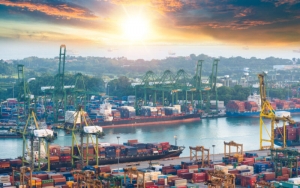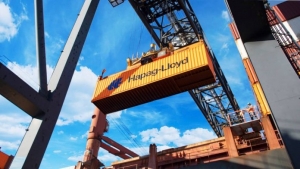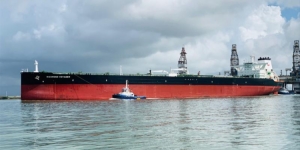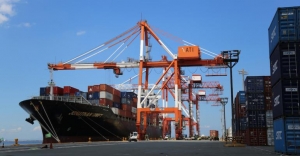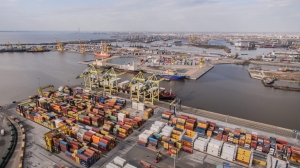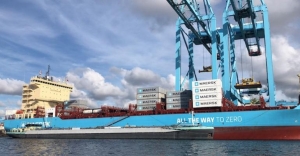News
Latest news
More...
Published jointly by Chinese state news agency, Xinhua, and global maritime data provider, Baltic Exchange, the report lists Singapore as the global leading maritime center, followed by London and Shanghai.
The island nation scored 95.32 out of a possible 100 points, while the maritime support services powerhouse of London scored 83.35 points and the port-city of Shanghai takes third place with 81.58 points.
Singapore has retained its position due to its strategic location, international outlook, and established ecosystem of professional global maritime services and good governance, according to the Baltic Exchange.
London and Shanghai have retained their positions of second and third place within the Index for the past four years.
Further down the top 10, there was little movement as Hong Kong, Dubai, Rotterdam, and Hamburg take fourth, fifth, sixth and seventh place, respectively.
New York and its New Jersey port dropped by two places from eighth place last year, to 10th place this year while Athens/Piraeus moved up by one place.
A relative newcomer to the Index, Ningbo-Zhoushan, sits at number nine. The Chinese city’s ranking amongst the top 10 is primarily due to it being the busiest port in the world in terms of cargo tonnage.
READ: PSA implements AI-based digital solution in Singapore
A total of 43 maritime locations were rated as part of this report, which considers port factors including cargo throughput, number of cranes, length of container berths and port draught.
Hapag-Lloyd increases rates from Middle East and Indian Subcontinent to US East Coast and Gulf Coast
Hapag-Lloyd announced a General Rate Increase (GRI) / General Rate Adjustment (GRA) from the Middle East and Indian Subcontinent to the United States East Coast and Gulf Coast for cargo transported in 20’ and 40’ dry, reefer and special containers, including high cube equipment.
This rate increase of US$200 per container will be applicable to all types of boxes from 1 November and will be valid until further notice.
Middle East and Indian Subcontinent include India, Bangladesh, Sri Lanka, Pakistan, United Arab Emirates, Bahrain, Oman, Kuwait, Qatar and Iraq.
The Iranian Navy has recently seized two foreign vessels on charges of fuel smuggling, carrying approximately 1.5 million liters of oil. These seizures occurred earlier in the week.
The vessels in question were taken to the Mahshahr port, where authorities detained 37 crew members. The crewmembers have been handed over to judicial authorities for further legal proceedings.
Adm. Mohammad-Sharif Shirali, deputy commander of the IRGC Navy's Third Naval Zone, was quoted by the Iranian Tasmin News Agency, explaining that these vessels were apprehended while attempting to smuggle oil and gas from the Islamic Republic within the Persian Gulf. He mentioned that the vessels had been under close surveillance for the past two days, and the seizure was executed in accordance with judicial orders.
This incident is not the first time Iran has intercepted fuel-carrying vessels on smuggling charges within the Persian Gulf. A notable recent case involved the Bahamas-flagged oil tanker RICHMOND VOYAGER, which was seized after colliding with an Iranian vessel in the Sea of Oman in July.
“As we seek to grow our legacy ports & terminals business, we are also working to significantly enhance our capabilities within the fuller spectrum of supply chain solutions – from landside logistics and warehousing to freight forwarding and industrial parks,” Glenn Hilton, CEO & Managing Director, Asia Pacific for DP World, tells Seatrade Maritime News. This dovetails with a global ambition to become an end-to-end logistics provider.
DP World has terminals in Laem Chabang in Thailand, Ho Chi Minh City in Vietnam, and Manila and Batangas in the Philippines. It is also growing a presence in Indonesia with projects and terminals in Belawan in Sumatra and Gresik in Java, which we covered in more detail here.
Across it’s Asia – Pacific portfolio of 18 terminals in Asia – Pacific DP World saw 3.1% volume growth in the first half of 2023 – this compared to a 2% decline for its global terminal business as a whole.
Hilton says they continue to be optimistic about their Asian terminals business and Southeast Asia highlights growth in the Philippines.
“For example, our Batangas and Manila ports, which are managed by Asian Terminals Incorporated where DP World is a shareholding partner, handled a consolidated container throughput of over 384,000 TEU in the first quarter of 2023, representing 19.8% year-on-year growth,” he says.
“The Port of Batangas is the Philippines’ busiest container, passenger and car carrier port and a key link with the Asia-Europe trade corridor.”
In 2021 DP World set-up in Asia-Pacific regional headquarters in Singapore which Hilton notes is a “regional point of convergence” for its business partners. Focus is on working with these partners on logistics and supply chain in specific verticals.
“Within Southeast Asia, DP World is on the lookout for suitable opportunities to help streamline the flow of trade, especially for the automotive, technology, health and consumer goods sectors. Our strategy in the region is centered on providing customers with integrated solutions and servicing new markets,” he says.
One such partnership is a majority stake DP World acquired in Korean multi-modal transport specialist UNICO in 2020, which operates in 20 countries. “UNICO’s strong position in the fast-growing transcontinental rail freight market between East Asia, Central Asia and Russia is aligned with DP World’s strategy to bolster its logistics capabilities and expand within APAC and Europe,” Hilton explains.
Russia has designated the International Transport Workers’ Federation (ITF) as an “undesirable” organization in a step the union said will have significant ramifications for 1.6 million Russian members, the ITF said on Friday.
The label “undesirable” has been applied to dozens of foreign groups since Moscow began using the classification in 2015, and effectively bans an organization outright.
Russia’s Prosecutor General said in a Sept. 5 statement that the ITF posed a “threat” to Russia’s constitutional order.
Russia’s transport ministry declined to comment when contacted on Friday.
The London-headquartered ITF said it refuted all allegations and said it existed “to protect and improve workers’ lives.”
“This designation will have significant ramifications for the 1.65 million Russian transport workers affiliated to the ITF at the time this designation was announced,” it said in a statement on Friday, adding that tens of thousands of Russian seafarers, who sail on ships covered by ITF-approved collective agreements, would be impacted.
“ITF continues to treat Russian seafarers the same as any other seafarer seeking our assistance and support.”
The ITF is an affiliate-led movement of 740 transport workers’ unions across the world, and says it is “the voice of the 20 million transport workers who move the world.”
The Russian branch of Greenpeace said in May it would shut down after authorities declared the environmental group undesirable.
Equinor will supply green methanol to the Danish shipping line from September 2023 when the 2,100 TEU vessel goes into service and the first half 2024. The agreement bridges a gap until long supply from an e-methanol plant in Southern Denmark operated by European Energy comes on stream.
Equinor will supply green methanol through its production plant at Tjeldbergodden with bunkering in the Port of Rotterdam.
The world’s first methanol-powered containership for Maersk will be named in Copenhagen later this month after which will operate of a Northern Europe – Baltic loop.
For its delivery voyage between South Korea and Denmark the vessel was supplied with green methanol by OCI Global in multiple bunkering operations.
“It is critical to get energy majors to the table and start supplying future fuels at scale. This is the form of engagement we need to continue accelerating the pioneering journey towards a green fuel economy for global shipping. With more than 100 methanol enabled vessels on order across the industry, the demand for green fuel production is rising and will continue to do so in the years to come,” said Rabab Boulos, Chief Infrastructure Officer at AP Moller - Maersk.
Maersk has been a forerunner in bringing methanol as a fuel into container shipping and has further 24 methanol dual-fuel containerships on order.




















